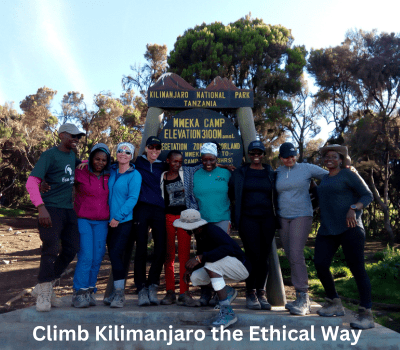Is it necessary to hire a guide when climbing Kilimanjaro?
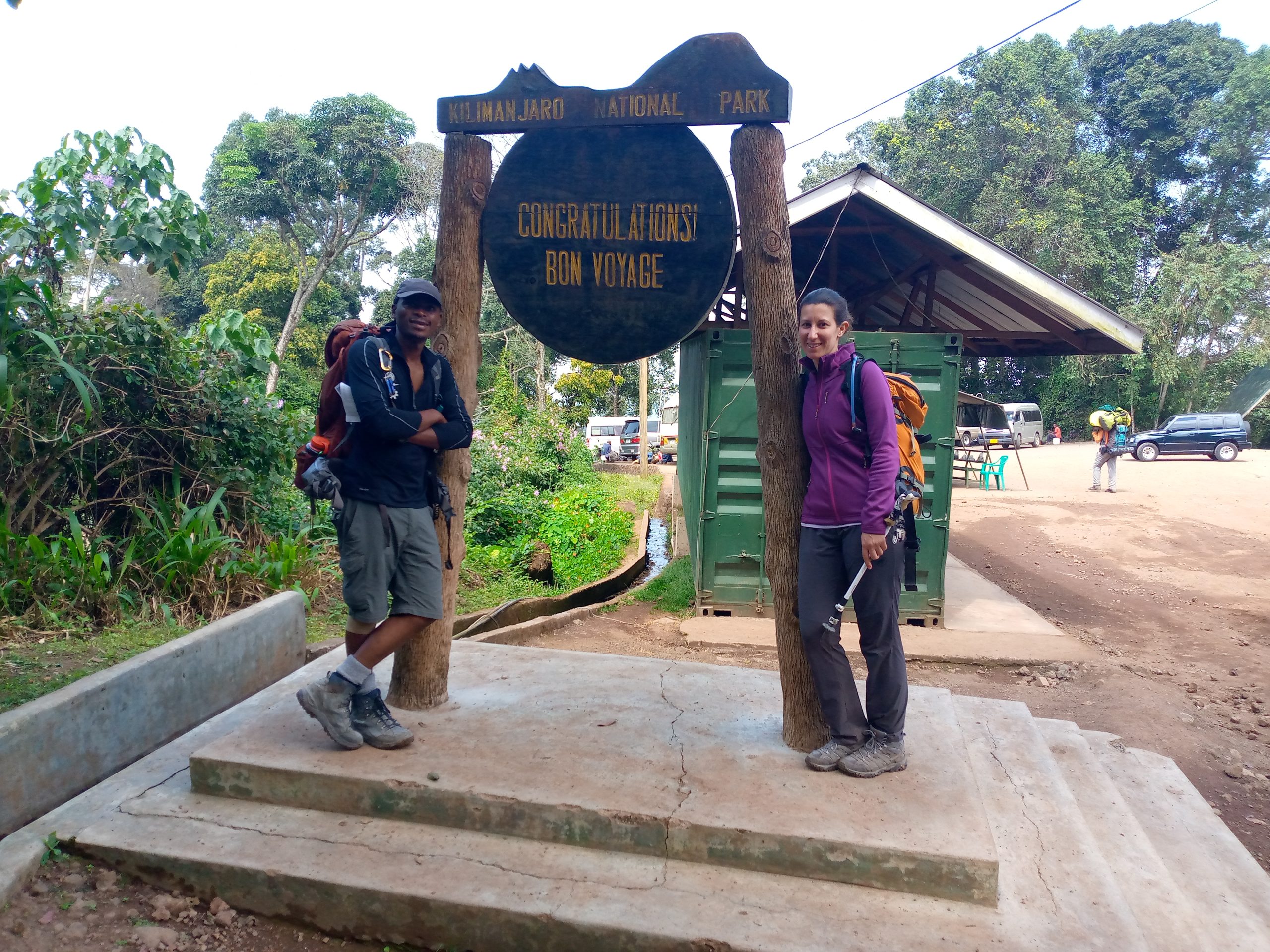
Introduction: Can You Climb Kilimanjaro Alone?
Mount Kilimanjaro is the highest free-standing mountain in the world and the crown jewel of African trekking. But unlike other high-altitude peaks where solo trekking is allowed, Kilimanjaro has one crucial rule that every climber needs to know: you cannot climb it without a licensed guide. That’s right — hiring a guide is mandatory by law.
Still, many climbers — especially experienced trekkers and backpackers — ask: “Can I climb Kilimanjaro independently?” “Is hiring a guide truly necessary?” In this ultimate guide, we’re breaking it all down:
- The legal rules around climbing Kilimanjaro
- Why hiring a guide is essential — not just required
- The benefits of going with a local operator like Eco-Africa Climbing
- The risks of trying to climb without one
This isn’t just about compliance — it’s about safety, support, local empowerment, and summit success. Let’s get into it.
Is It Legally Required to Hire a Guide?
Yes. The Tanzanian government mandates that all climbers must be accompanied by a registered, licensed mountain guide. This law is enforced by the Tanzania National Parks Authority (TANAPA), which oversees Kilimanjaro National Park.
This rule applies to:
- All climbers, regardless of experience level
- All routes (Marangu, Machame, Lemosho, etc.)
- Solo travelers, groups, and luxury expeditions
At park entry gates, your guide must present your permits and itinerary. Without this, you will not be allowed entry. Attempting to hike without a guide is illegal and may result in fines, denial of entry, or arrest.
More details here:
Kilimanjaro’s Legal Requirements for Guides
Why Did Tanzania Make This Law?
It’s not just about control or revenue — it’s about safety, ethics, and sustainability. Kilimanjaro is a challenging high-altitude environment. Every year, people fall ill, get lost, or suffer injuries. The guide requirement ensures:
- Every climber has medical supervision
- Emergency protocols are in place
- Local communities benefit through jobs
- The mountain ecosystem is respected and protected
Want to learn more about local protection? Check out:
Why Eco-Africa Climbing Supports Ethical Travel
Top 5 Reasons Why Hiring a Guide on Kilimanjaro Is More Than a Legal Requirement
While the law says you must hire a guide, the reality is: you should want to. A guide isn’t just there to follow rules — they’re your coach, medic, cultural interpreter, and cheerleader all in one. When you climb Kilimanjaro with a company like Eco-Africa Climbing, your guide becomes your most important asset on the mountain.
1. Guides Keep You Safe
Altitude sickness can strike anyone. A good guide recognizes the warning signs of AMS, HAPE, and HACE, monitors your vitals daily with a pulse oximeter, and knows when to rest or descend. Your guide literally makes life-saving decisions — solo climbers wouldn’t have that critical support.
2. Guides Improve Your Chances of Summiting
Guided trekkers have a summit success rate of 90% or higher on longer routes. Without a guide, you’re guessing when to rest, how fast to hike, or how to manage symptoms. That’s why Eco-Africa’s trained, experienced local guides lead hundreds of successful treks each year.
3. Guides Share Local Culture and Heritage
Kilimanjaro isn’t just a climb — it’s a Tanzanian journey. Your guide will teach you Swahili phrases, point out rare flora and fauna, and share the mountain’s deep history. You’ll leave with more than just photos — you’ll leave with stories.
4. Guides Help You Navigate and Manage Logistics
Routes can be confusing, weather unpredictable, and campsites chaotic. Your guide handles all of this, so you can focus on your climb. They’ll coordinate porters, meals, water stops, and campsite registration.
Need help choosing a route? Start here:
Compare Kilimanjaro Routes
5. Guides Are Trained for Emergency Rescue
Should something go wrong, your guide is trained to initiate emergency evacuation, use oxygen tanks, and coordinate helicopter rescue if needed. Without one, you’re risking your safety — and your life.
What About Hiring a Cheap or Unlicensed Guide?
Beware of “budget” or freelance guides who aren’t affiliated with a registered company. These guides may not be properly trained, equipped, or authorized. Some may mistreat porters, lack rescue knowledge, or cut corners on food and gear.
For your safety, choose a KPAP-verified, ethical operator like Eco-Africa Climbing, who provide:
- Licensed, local expert guides
- Fair wages and porter welfare
- 7-star mountain service
Explore their TripAdvisor reviews:
Eco-Africa Climbing Reviews
What Happens If You Try to Climb Without a Guide?
Let’s say you try to sneak up the mountain solo — what’s the worst that could happen? Well… a lot. First, you won’t get past the entry gate. Rangers will check for your permit, which is only issued through registered operators. No permit, no entry.
But let’s say you somehow find a way around (not advised) — what then? Here are the risks:
- Arrest and fines from park authorities
- No access to campsites (they’re managed and logged by rangers)
- No rescue support if you fall sick or get lost
- Zero safety monitoring for altitude-related illness
Bottom line? It’s not just illegal — it’s dangerous. Don’t do it.
Common Myths About Hiring a Guide
“I’ve climbed mountains before, I don’t need a guide.”
Kilimanjaro isn’t just a walk — it’s a high-altitude, multi-day expedition. Most injuries and fatalities happen because people underestimate altitude and overestimate their independence.
“A guide will slow me down.”
Actually, they’ll pace you exactly right to maximize acclimatization. The Swahili phrase “pole pole” (slowly) is your summit secret weapon.
“It’ll be more expensive.”
Not true — guides are already included in all climbing packages. Eco-Africa Climbing offers transparent pricing with no hidden fees.
Real Stories: How Guides Saved the Day
Anna from Germany – 7-Day Lemosho
“I started feeling dizzy at 4,000 meters. My Eco-Africa guide checked my vitals, gave me a rest plan, and monitored me through the night. Without him, I would’ve panicked — but I made it to the summit safely.”
Derek from Australia – Tried Booking Without a Guide
“I thought I could book a route myself and just ‘show up.’ Turns out, that’s not a thing. You need an operator for permits and logistics. I ended up climbing with Eco-Africa, and it was the best decision I made.”
Guides Are Included in All Packages
You don’t need to hire a guide separately. All Kilimanjaro packages include:
- Licensed lead guide and assistant guides
- Mountain crew including cook and porters
- Safety gear, medical kits, and logistics
Still want to ask questions directly?
Contact Eco-Africa Climbing here
Conclusion: The Right Guide Makes the Difference Between Risk and Reward
Hiring a guide on Kilimanjaro isn’t just a legal requirement — it’s your ticket to safety, success, and an unforgettable experience. From handling emergencies to pacing your ascent, guides are your lifeline on the mountain. More importantly, by choosing a local, ethical company like Eco-Africa Climbing, you’re empowering Tanzanian communities, supporting fair labor, and getting unmatched service.
Don’t risk going it alone. The law won’t let you, and the mountain won’t forgive carelessness. A guide doesn’t just help you climb — they help you summit.
Helpful Resources About Kilimanjaro Guides
- What Makes a Great Kilimanjaro Guide?
- How to Choose a Trustworthy Local Guide
- Guide Requirement Laws
- Why Choose Eco-Africa Climbing?
FAQs: Hiring a Guide on Mount Kilimanjaro
Is it illegal to climb Kilimanjaro without a guide?
Yes, Tanzanian law requires all climbers to hire a licensed guide. Rangers enforce this at park gates.
Are guides included in my climb package?
Yes. With Eco-Africa Climbing, all climbs include professional guides, porters, and a full support team.
Can I hire a guide after arriving in Tanzania?
Technically, yes. But for quality and safety, it’s best to book with a reputable company in advance like Eco-Africa Climbing.
How do I know my guide is legit?
They must be licensed by TANAPA and operate under a registered local company — preferably a KPAP partner like Eco-Africa.
Can I tip my guide and porters?
Absolutely. Tipping is customary and appreciated. See the guide: Tipping on Kilimanjaro
Ready to Book Your Kilimanjaro Climb With a Local Expert?
Choose safety, sustainability, and success with Eco-Africa Climbing — Tanzania’s KPAP-verified, locally owned, 7-star rated operator.
Contact us now to start your personalized Kilimanjaro experience — guided by the best in the business.
Share:
Related Posts
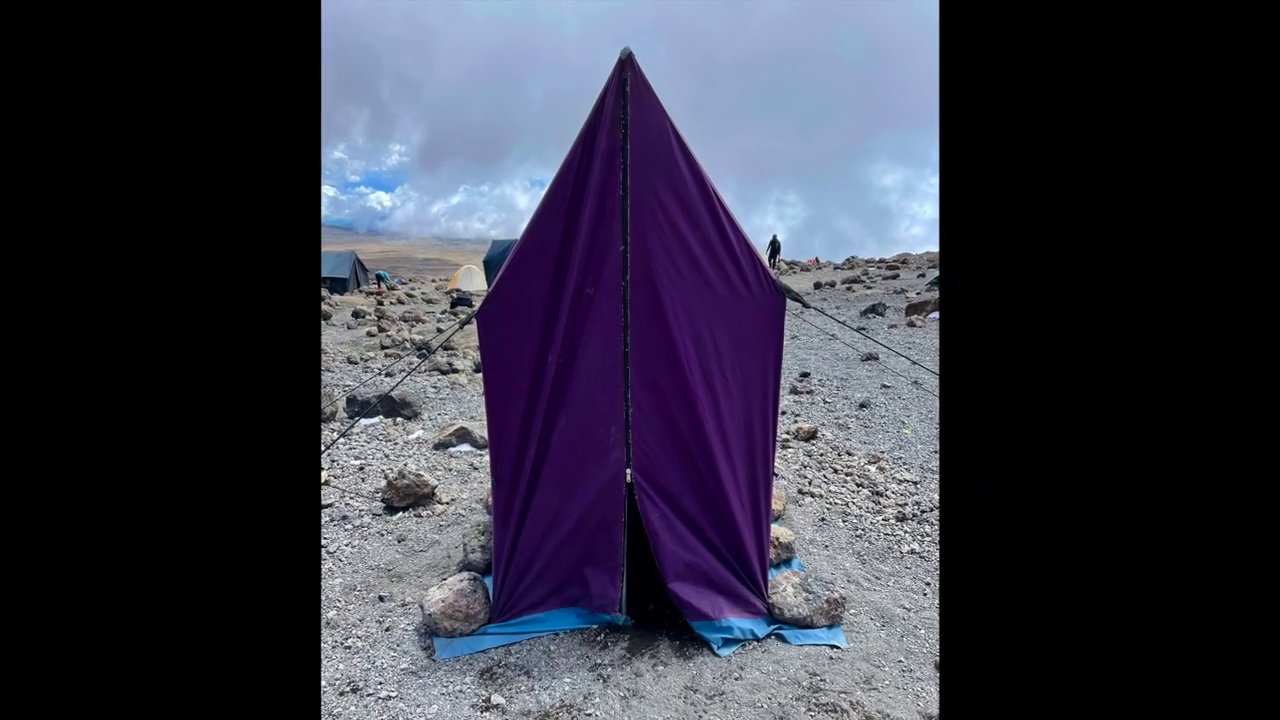
bathroom on mountain kilimanjaro
Bathroom on Mountain Kilimanjaro: What to Expect and How to Prepare Introduction One of the most common — and least discussed — questions from people
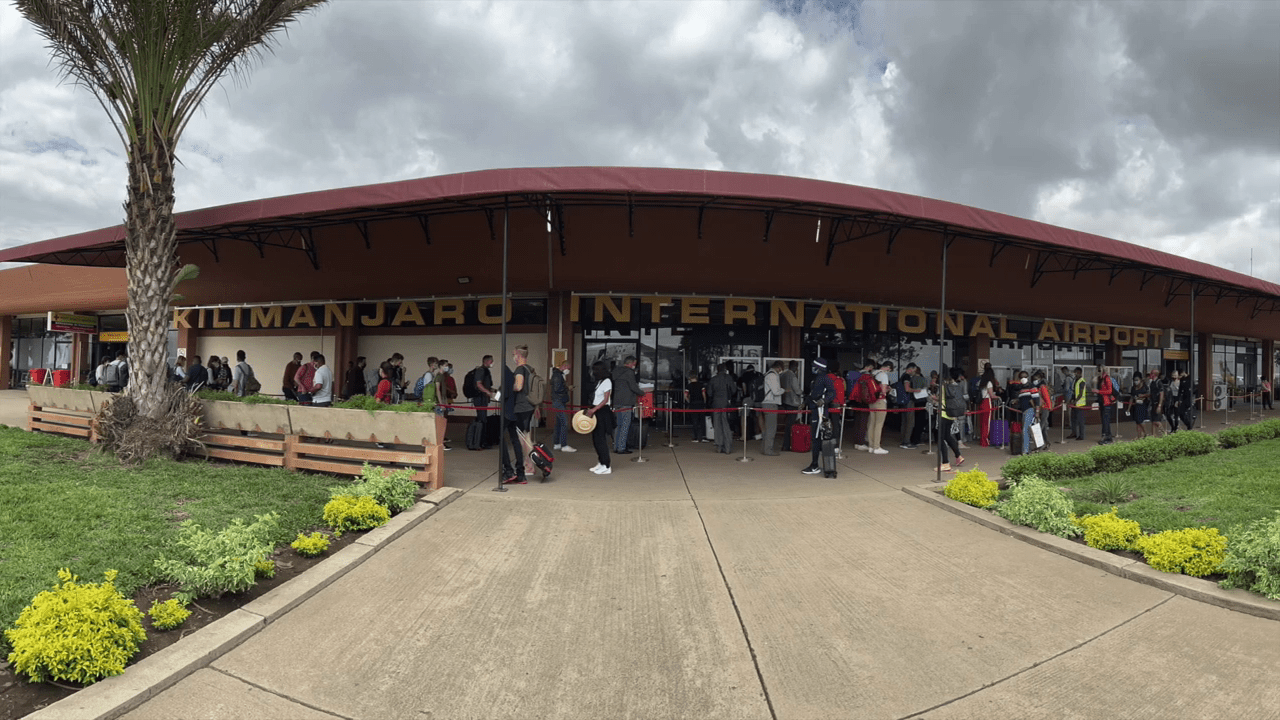
Are Guides Readily Available in Tanzania Without Prior Booking?
Are Guides Readily Available in Tanzania Without Prior Booking? Introduction: Should You Risk Climbing Without Pre-Booking? Climbing Mount Kilimanjaro is a dream for many adventurers.
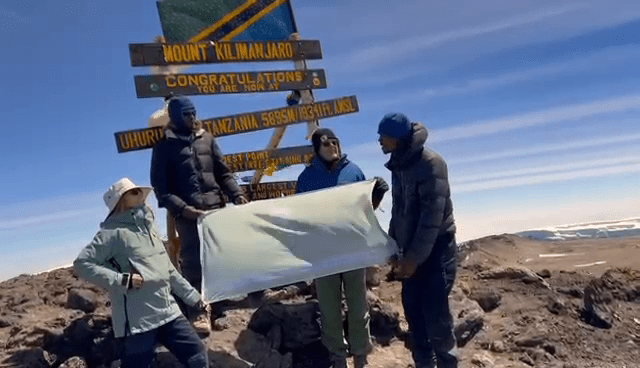
How Can I Find a Reliable Local Guide for My Kilimanjaro Expedition?
How Can I Find a Reliable Local Guide for My Kilimanjaro Expedition? Introduction: Why the Right Guide Is Key to Kilimanjaro Success Climbing Mount Kilimanjaro
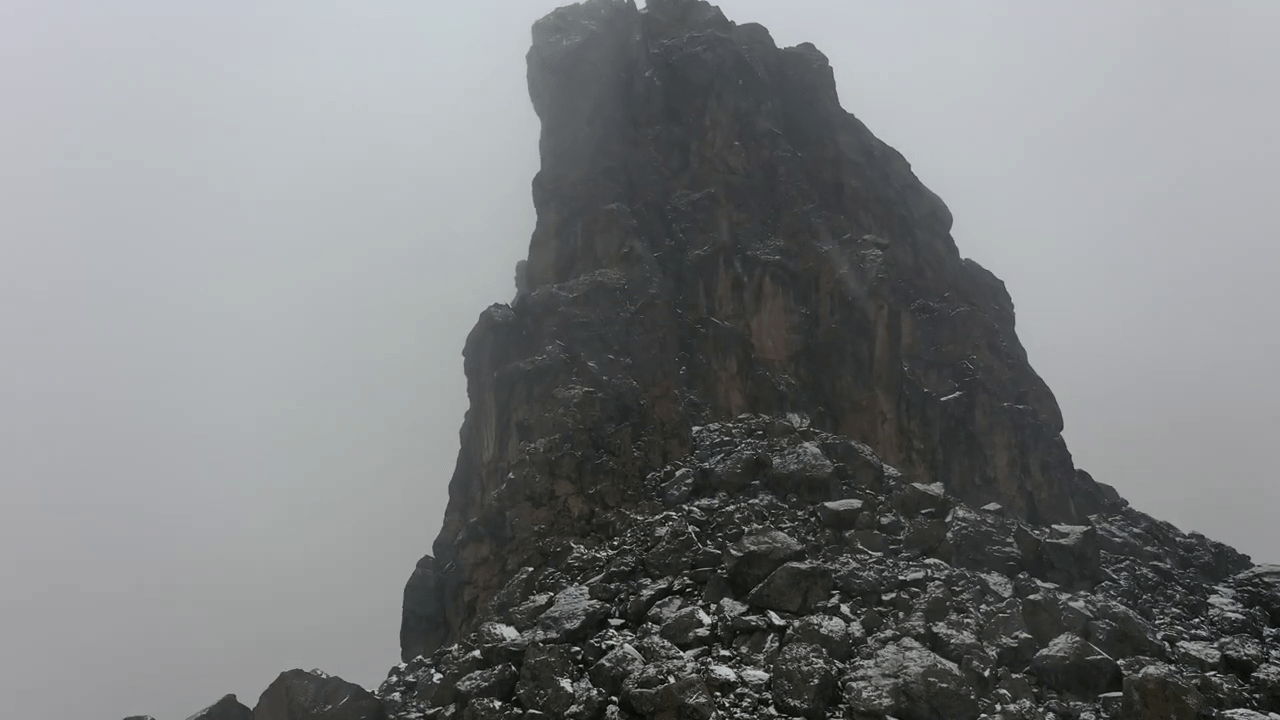
Is Climbing Kilimanjaro Dangerous for Individuals Without Mountaineering Experience?
Is Climbing Kilimanjaro Dangerous for Individuals Without Mountaineering Experience? Introduction: The Myth of Danger and Experience Many aspiring adventurers wonder if climbing Mount Kilimanjaro is
